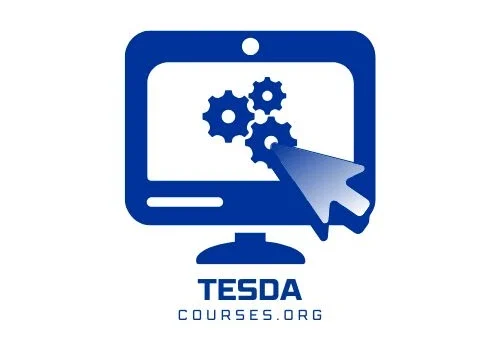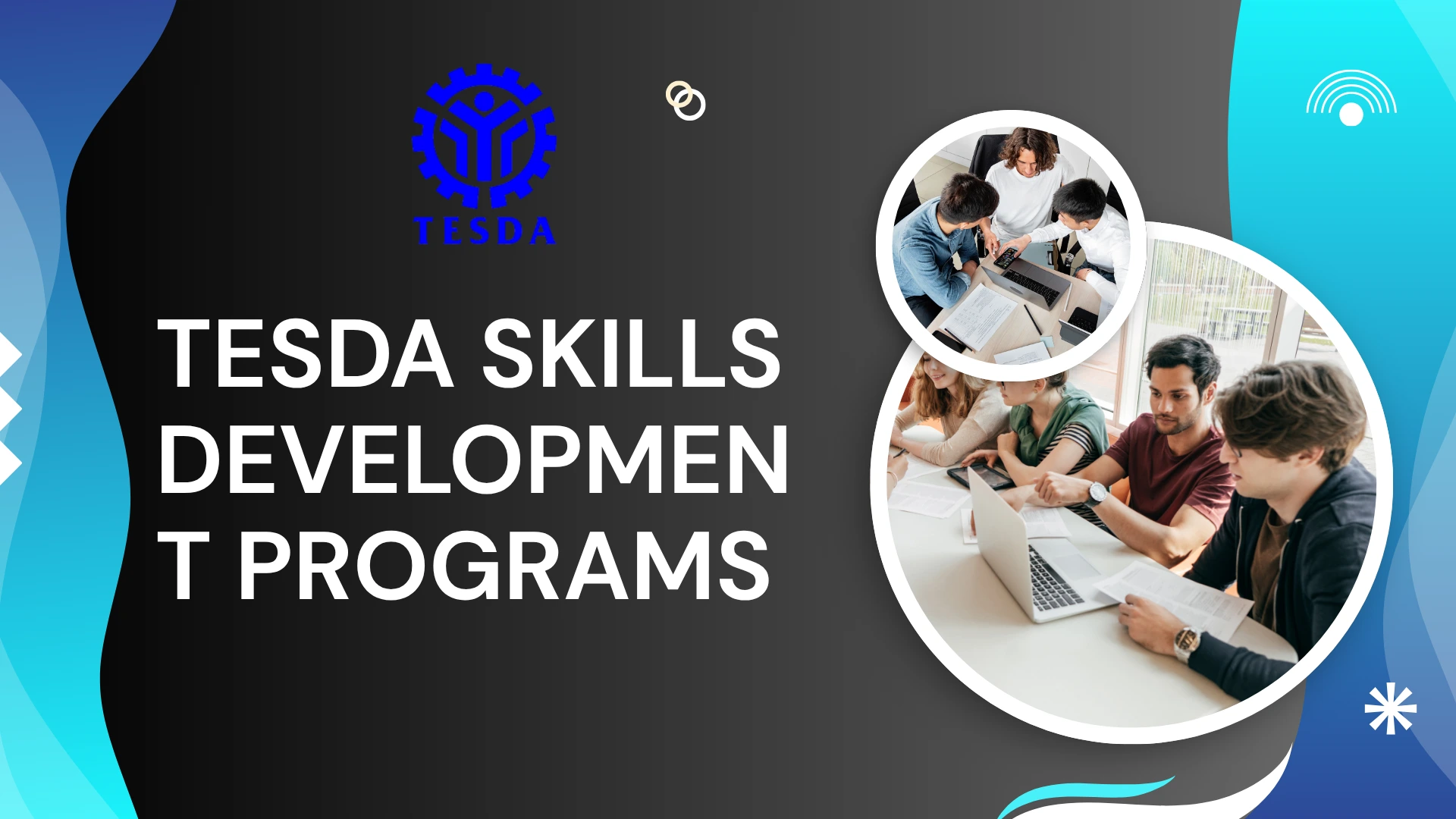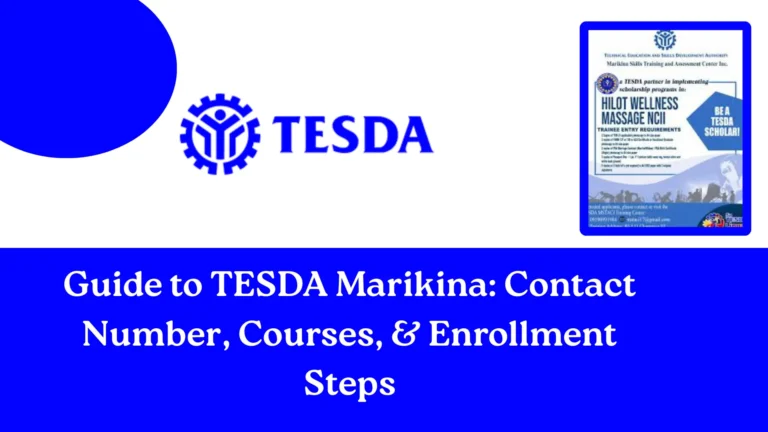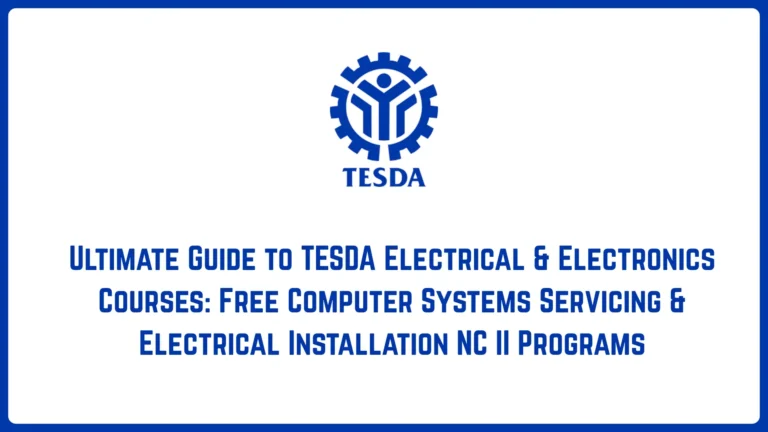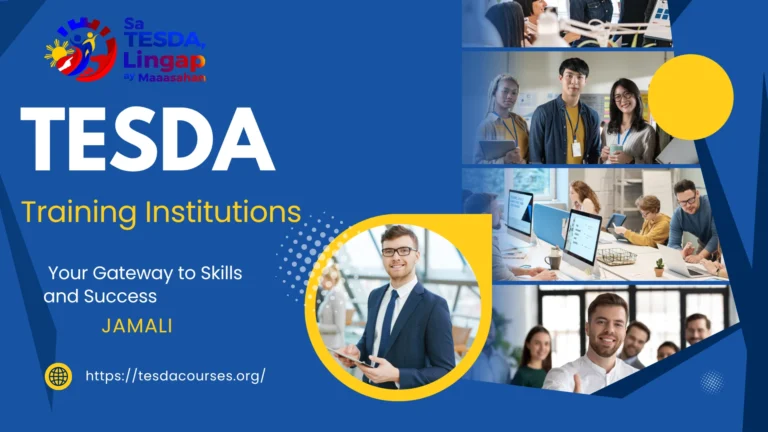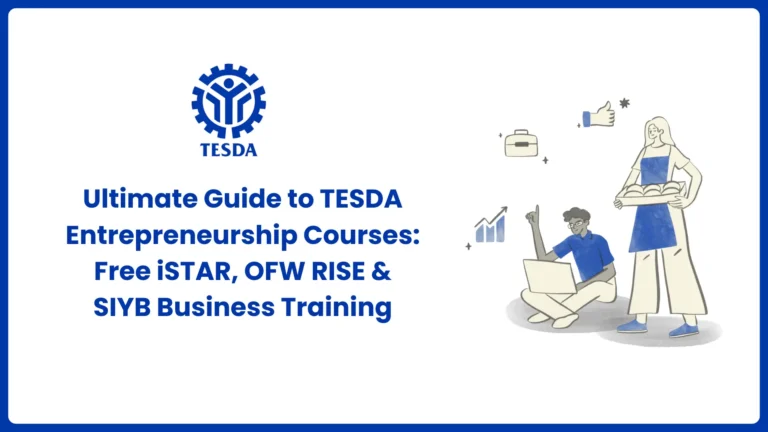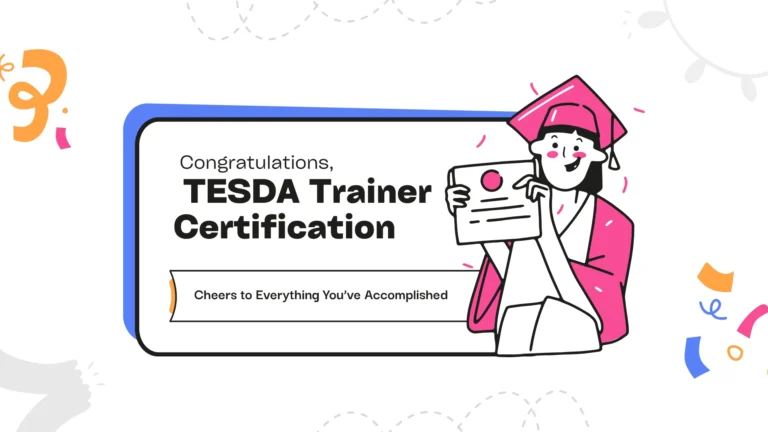TESDA Skills Development Programs: Your Ultimate Guide to Upskilling and Career Success
I’ll never forget the day I met Rosa at a coffee shop in Quezon City. She was serving my latte with this huge smile, and we got talking. Turns out, two years earlier, she’d been unemployed, depressed, and convinced her life was going nowhere. Fast forward to our conversation: she’d just completed a TESDA skills development program in barista training, landed this job, and was already eyeing management positions.
“TESDA changed everything,” she told me, eyes bright. “I went from having zero marketable skills to having employers actually wanting to hire me.”
That’s the power of TESDA skills development programs—they transform lives by transforming skills.
If you’re an international student in the Philippines, or anyone looking to upskill, reskill, or finally skill up, TESDA’s buffet of training opportunities might just be your golden ticket. But here’s the thing: with hundreds of programs, scholarships, online options, and training centers to choose from, where do you even start?
That’s exactly what this guide is for. I’m going to walk you through everything you need to know about TESDA skills training—from understanding what’s available, to actually enrolling, to leveraging your new skills for career success. No bureaucratic speak. No confusing jargon. Just straight talk about how to make TESDA work for you.

What Exactly Are TESDA Skills Development Programs?
Let’s start with the basics because clarity beats confusion every time.
TESDA skills development programs are government-sponsored training initiatives designed to equip Filipinos (and yes, international students too) with marketable, job-ready skills. These aren’t your typical “death by PowerPoint” seminars. They’re hands-on, practical, industry-aligned training programs that actually prepare you for real work.
The TESDA Skills Development Ecosystem
Think of TESDA’s skills development system as a comprehensive career-building platform with three main components:
1. Direct Training Programs TESDA-run training centers offering courses across various industries:
- Trade and technical skills
- Service sector competencies
- Agricultural training
- Digital and IT skills
- Creative and artistic programs
2. Scholarship and Funding Programs Financial support to make training accessible:
- Full scholarship programs
- Partial subsidies
- Training grants
- Livelihood packages
- Toolkits and starter kits
3. Online Learning Platform Digital access to skills training:
- Self-paced online courses
- Blended learning options
- Virtual training modules
- E-learning resources
- Mobile-accessible content
Why TESDA Skills Development Programs Matter
Here’s why TESDA skills training programs are game-changers:
For Individuals:
- Career entry or re-entry
- Skill upgrading and updating
- Career shifting opportunities
- Entrepreneurship preparation
- Increased employability
- Higher earning potential
For the Economy:
- Addresses skills gaps
- Reduces unemployment
- Supports industry needs
- Builds competitive workforce
- Drives economic growth
- Promotes social mobility
For International Students:
- Affordable skill acquisition
- Recognized certifications
- Cultural integration
- Network building
- Career launching pad
- Pathway to employment
TESDA Courses for Abroad: The Ultimate Guide to In-Demand NC II & NC III Certifications
Types of TESDA Skills Development Courses
The variety of TESDA skills development courses is honestly impressive. Let’s break down what’s available:
Trade and Technical Programs
Construction and Building:
- Carpentry and masonry
- Plumbing and pipefitting
- Electrical installation
- Welding and fabrication
- Heavy equipment operation
- Construction safety
Automotive and Transport:
- Automotive servicing
- Motorcycle/small engine repair
- Automotive body painting
- Driving instruction
- Automotive electrical systems
Manufacturing and Production:
- Machine operation
- Industrial sewing
- Garments manufacturing
- Quality control
- Production management
- CNC machining
Service Industry Programs
Hospitality and Tourism:
- Cookery and food preparation
- Food and beverage service
- Housekeeping
- Front office operations
- Tour guiding
- Events management
- Bartending
Personal Care and Wellness:
- Beauty care and hairdressing
- Massage therapy
- Caregiving
- Nail care services
- Spa management
- Wellness therapy
Customer Service:
- Contact center services
- Sales and marketing
- Retail management
- Customer relations
- Business process outsourcing
Technology and Digital Programs
Information Technology:
- Computer systems servicing
- Computer programming
- Web development
- Network administration
- Cyber security basics
- Database management
Digital Media:
- Animation
- Graphic design
- Digital illustration
- Video editing
- Social media management
- Content creation
Emerging Technologies:
- Internet of Things (IoT)
- Basic robotics
- 3D printing
- Drone operation
- Smart agriculture technology
Agriculture and Food Production
Crop Production:
- Organic agriculture
- Vegetable production
- Fruit tree production
- Ornamental plant production
- Urban farming
Livestock Management:
- Swine production
- Poultry raising
- Goat/sheep production
- Fish farming
- Dairy production
Food Processing:
- Food preservation
- Meat processing
- Bread and pastry production
- Food product development
- Quality assurance
Creative and Artistic Programs
Arts and Crafts:
- Fashion design
- Jewelry making
- Handicrafts production
- Furniture making
- Upholstery
- Interior design basics
Performing Arts:
- Music production basics
- Stage performance
- Events hosting
- Photography
- Videography
The Ultimate Guide to TESDA Training Centers, Courses, and Contact Information Nationwide
TESDA Skills Development Courses List: Popular Programs
Let’s look at specific TESDA skills development courses that are consistently in-demand:
Top 20 High-Demand Programs
| Rank | Course Name | Duration | Average Employment Rate |
|---|---|---|---|
| 1 | Caregiving NC II | 3-4 months | 92% |
| 2 | Cookery NC II | 3-6 months | 88% |
| 3 | Contact Center Services NC II | 2-3 months | 85% |
| 4 | Automotive Servicing NC II | 4-6 months | 87% |
| 5 | Shielded Metal Arc Welding NC II | 3-4 months | 90% |
| 6 | Electrical Installation & Maintenance NC II | 4-6 months | 89% |
| 7 | Housekeeping NC II | 2-3 months | 86% |
| 8 | Computer Systems Servicing NC II | 3-4 months | 84% |
| 9 | Beauty Care (Nail Care) NC II | 2-3 months | 82% |
| 10 | Plumbing NC II | 3-5 months | 88% |
| 11 | Bartending NC II | 2-3 months | 83% |
| 12 | Food and Beverage Services NC II | 3-4 months | 85% |
| 13 | Carpentry NC II | 4-6 months | 87% |
| 14 | Organic Agriculture Production NC II | 3-5 months | 80% |
| 15 | Dressmaking NC II | 3-4 months | 81% |
| 16 | Bread and Pastry Production NC II | 3-4 months | 84% |
| 17 | Massage Therapy NC II | 3-4 months | 86% |
| 18 | Heavy Equipment Operation NC II | 2-3 months | 91% |
| 19 | RAC (Refrigeration & Air-Conditioning) Servicing NC II | 4-6 months | 89% |
| 20 | Events Management Services NC III | 3-5 months | 82% |
Emerging Programs for 2025
Future-Ready Skills:
- Digital Marketing Fundamentals
- E-Commerce Management
- Renewable Energy Installation
- Smart Home Technology
- Agricultural Drones Operation
- Food Delivery Service Management
- Online Content Creation
- Sustainable Packaging Design
These programs align with industry trends and emerging job markets.
TESDA Skills Development Scholarship: Free Training Opportunities
Here’s the beautiful part: most TESDA skills development scholarship programs are completely FREE. Let me break down your options:
TWSP (Training for Work Scholarship Program)
The flagship scholarship that covers everything.
What’s Included:
- Full tuition and training fees
- Assessment and certification fees
- Training materials and supplies
- Training toolkit (worth ₱3,000-₱5,000)
- Learning allowance (₱3,000-₱6,000)
- Accident insurance during training
Eligibility:
- Filipino citizen (permanent residents may qualify)
- At least 18 years old
- Willing to undergo training
- Physically and mentally fit
- Disadvantaged youth prioritized
Priority Groups:
- High school graduates
- Unemployed individuals
- Underemployed workers
- Out-of-school youth
- Returning overseas Filipino workers
- Displaced workers
- Persons with disabilities
- Indigenous peoples
- Solo parents
Application Process:
- Find Available Programs:
- Visit TESDA website or regional office
- Check scholarship announcements
- Identify courses with TWSP slots
- Prepare Documents:
- Accomplished application form
- Birth certificate (PSA copy)
- Recent 1×1 or 2×2 photos
- Valid ID
- Certificate of Indigency (if applicable)
- High school diploma or equivalent
- Submit Application:
- During scholarship enrollment period
- At TESDA provincial/district office
- Or through partner training institutions
- Online submission (when available)
- Selection Process:
- Document verification
- Interview (sometimes)
- Selection based on criteria
- Notification of results
- Enrollment:
- Sign scholarship agreement
- Comply with requirements
- Start training on scheduled date
Obligations:
- Complete the training program
- Take competency assessment
- Participate in tracer studies
- Report employment status
- No transferring to other programs
STEP (Special Training for Employment Program)
Short-term, focused training for immediate employment.
Key Features:
- 40-320 hours training duration
- Employability-focused
- Quick turnaround
- Job placement assistance
- Industry partnerships
Target Beneficiaries:
- Jobseekers needing quick employment
- Community-based groups
- Barangay residents
- Disadvantaged sectors
- Emergency employment needs
Common STEP Programs:
- Basic life support and first aid
- Housekeeping fundamentals
- Basic food service
- Cellphone repair basics
- Home appliance repair
- Basic computer literacy
PESFA (Private Education Student Financial Assistance)
For those preferring private training institutions.
Coverage:
- Up to ₱20,000 per student per year
- Covers tuition and other fees
- Assessment fees included
- Can be renewed
Requirements:
- Enrollment in TESDA-registered private institution
- Good academic standing
- Financial need
- Compliance with program rules
Enterprise-Based Training Scholarships
Company-sponsored training leading to employment.
How It Works:
- Company identifies skills needed
- Partners with TESDA for training
- Scholarship to qualified applicants
- Job offer upon successful completion
Benefits:
- Guaranteed employment
- Industry-specific training
- Modern equipment and facilities
- Mentorship from professionals
- Salary during on-the-job training (sometimes)
Special Scholarship Programs
For OFWs (Overseas Filipino Workers):
- Skills upgrading programs
- Reintegration training
- Entrepreneurship courses
- Priority processing
- Additional support services
For Senior Citizens:
- Productive aging programs
- Skills updating
- Entrepreneurship training
- Social preparation
For Persons with Disabilities:
- Inclusive training programs
- Adapted facilities and equipment
- Specialized instruction
- Assistive devices provided
For Women:
- Gender-responsive programs
- Non-traditional skills training
- Entrepreneurship focus
- Childcare support (some programs)
TESDA Skills Development Online: Digital Learning Options
The pandemic accelerated TESDA’s digital transformation. TESDA skills development online is now a robust offering:
TESDA Online Program (TOP)
Free, self-paced online courses.
Available Courses (50+ and growing):
Information Technology:
- Visual Graphic Design
- Web Development
- Animation
- 2D Animation
- Game Development
- Mobile Application Development
Entrepreneurship:
- Entrepreneurial Mind Setting
- Bookkeeping
- Customer Service
- Quality Management System
- Project Management
Healthcare:
- Basic Life Support
- Drug Abuse Prevention
- Infection Control
- Patient Care
Agriculture:
- Organic Agriculture
- Mushroom Production
- Vermicomposting
- Urban Gardening
Personal Development:
- Bread Making
- Pastry Production
- Bartending
- Barista Training
- Beauty Care basics
How TOP Works:
- Registration:
- Go to tesdaonline.ph
- Create free account
- Verify email
- Complete profile
- Course Selection:
- Browse course catalog
- Read course description
- Check prerequisites
- Enroll in desired course
- Learning:
- Self-paced modules
- Video lessons
- Reading materials
- Interactive activities
- Quizzes and assessments
- Completion:
- Complete all modules
- Pass final assessment
- Receive Certificate of Completion
- Download digital certificate
Important Notes:
- TOP certificates are NOT National Certificates
- They’re certificates of course completion
- Good for skills enhancement
- Not equivalent to competency assessment
- Can supplement formal training
- Useful for career switching research
The Ultimate Guide to TESDA Requirements: Enrollment, Certification, and Center Accreditation
Blended Learning Programs
Combining online and face-to-face training.
Structure:
- Theory modules online (30-50%)
- Practical training in person (50-70%)
- Flexible scheduling
- Reduced facility time needed
- Cost-effective approach
Benefits:
- Best of both worlds
- Flexibility for working students
- Reduced travel costs
- Same quality as full face-to-face
- Recognized National Certificate
Virtual Training During Restrictions
When physical training isn’t possible:
Adaptations:
- Live online demonstrations
- Virtual simulations
- Home-based practical exercises
- Photo/video submission of outputs
- Remote assessment (theory portion)
- Deferred practical assessment
TESDA Skills Development Program Requirements
Let’s talk about TESDA skills development program requirements because knowing what you need saves time and frustration.
General Requirements
For Most Programs:
Personal Documents:
- Accomplished application form (from training center)
- Birth certificate (PSA copy preferred)
- Valid government-issued ID
- Recent passport-size photos (usually 2 copies, 2×2)
Educational Requirements:
- Varies by program level
- Basic programs: Elementary graduate
- Intermediate programs: High school level
- Advanced programs: High school graduate or higher
- Some programs: no educational requirement
Health Requirements:
- Good physical and mental health
- Medical certificate (for some programs like caregiving, cookery)
- Drug test (for certain programs)
- Chest X-ray (healthcare-related programs)
Age Requirements:
- Minimum 18 years old (most programs)
- Some programs accept 15-17 with parental consent
- No maximum age limit
- Special considerations for senior citizens
For International Students
Additional requirements for non-Filipino participants:
Immigration Documents:
- Valid passport
- Student visa or appropriate visa type
- Alien Certificate of Registration (ACR)
- Proof of legal stay in Philippines
Academic Records:
- Educational credentials
- English translation (if not in English)
- Authentication from Philippine embassy (sometimes)
Financial Capacity:
- Proof of ability to pay (if not scholarship)
- Bank statements (for visa purposes)
- Sponsorship letter (if applicable)
Language Proficiency:
- Basic English or Filipino language skills
- May need to pass language assessment
- Some programs offer language support
Program-Specific Requirements
Technical Programs (Welding, Electrical, Automotive):
- Physical fitness certificate
- Color vision test (for some)
- Manual dexterity assessment
- Basic math skills
- Safety awareness
Healthcare Programs (Caregiving, Massage Therapy):
- Medical clearance
- Psychological evaluation (sometimes)
- Immunizations up to date
- Health insurance
- Background check (for caregiving)
Hospitality Programs (Cookery, Bartending, Housekeeping):
- Health certificate from local health office
- Sanitary permit
- Food handling seminar certificate
- Professional appearance
IT Programs:
- Basic computer literacy
- Typing skills assessment
- Own laptop (preferred but not always required)
- Internet access (for some programs)
Agriculture Programs:
- Physical capability for farm work
- Basic agricultural knowledge
- Willingness to work outdoors
- Access to practice area (helpful)
TESDA Skills Development Program Registration: How to Enroll
The TESDA skills development program registration process is straightforward once you know the steps:
Step 1: Research and Choose Your Program
Decision Factors:
- Career goals and interests
- Market demand for the skill
- Training duration you can commit
- Location of training centers
- Financial considerations
- Prerequisites you meet
Research Methods:
- TESDA website course catalog
- Regional TESDA office visits
- Training center inquiries
- Online forums and groups
- Career counseling services
- Industry professionals
Step 2: Find Training Centers
Locating Centers:
- Use TESDA’s training center locator online
- Search by region, province, or city
- Filter by specific course
- Check accreditation status
- Read reviews and ratings
What to Verify:
- TESDA registration valid and current
- Authorized to offer your chosen course
- Quality facilities and equipment
- Qualified instructors
- Reasonable class sizes
- Good track record
Visit Potential Centers:
- Tour the facilities
- Meet the instructors
- Check equipment condition
- Observe ongoing classes
- Ask about pass rates
- Inquire about job placement
Step 3: Check Scholarship Availability
Before paying, explore free options:
Scholarship Inquiries:
- Ask training center about TWSP slots
- Check with local government programs
- Inquire about company sponsorships
- Research private foundation grants
- Explore special programs for your demographic
Application Timing:
- Scholarships announced periodically
- Usually before training batch starts
- Limited slots (first-come basis often)
- Application periods are short
- Don’t miss deadlines
Step 4: Prepare Requirements
Get all documents ready:
Document Preparation:
- Obtain PSA birth certificate (if needed)
- Photocopy IDs (clear, complete)
- Passport photos taken recently
- Fill out application forms completely
- Get required medical certificates
- Compile educational records
Organization Tips:
- Use clear folders or envelopes
- Label everything clearly
- Make extra photocopies
- Keep originals safe
- Create digital backups
Step 5: Submit Application and Enroll
Application Submission:
- Visit training center during office hours
- Bring complete requirements
- Fill out forms on-site (or pre-filled)
- Submit to admissions office
- Get acknowledgment receipt
- Note enrollment date
If Applying for Scholarship:
- Submit to TESDA office (not just training center)
- Wait for selection results
- Respond promptly if selected
- Sign scholarship agreement
- Comply with all conditions
Enrollment:
- Pay tuition (if not scholarship)
- Receive official receipt
- Get training schedule
- Note what to bring on first day
- Confirm attendance
Step 6: Prepare for Training
Before Day One:
- Buy required supplies/uniforms
- Arrange transportation
- Adjust work schedule if employed
- Inform family of commitments
- Get adequate rest
- Mental preparation
TESDA Skills Development Training Centers: Where to Train
TESDA skills development training centers come in various types. Understanding the differences helps you choose wisely:
Government-Run Centers
TESDA Technology Institutions (TTIs):
- Directly operated by TESDA
- Various specializations per center
- State-of-the-art facilities (usually)
- Highly qualified instructors
- Free or heavily subsidized
- Competitive admission
Provincial Training Centers:
- Regional TESDA facilities
- Multiple course offerings
- Community-focused programs
- Scholarship slots available
- Accessible locations
Advantages:
- Very affordable or free
- Quality assurance
- Government-backed credentials
- No profit motive
- Student-centric
Challenges:
- Limited slots (high competition)
- Fixed schedules (less flexible)
- Sometimes long wait times
- Bureaucratic processes
- Equipment may be older
Private Training Institutions
TESDA-registered private schools and training centers.
Types:
- Technical-vocational schools
- Specialized training centers
- College TVET departments
- Industry-run training facilities
- Corporate training centers
Advantages:
- More available slots
- Flexible schedules (day, night, weekend)
- Modern equipment (often)
- Industry partnerships
- Better facilities (sometimes)
- Faster processing
Considerations:
- Tuition fees required
- Quality varies widely
- Some prioritize profit
- Verify TESDA registration always
- Check track record carefully
Community-Based Training
Local government and barangay programs.
Features:
- Neighborhood accessibility
- Free or low-cost
- Community development focus
- Social integration
- Basic to intermediate skills
Best For:
- Seniors and homemakers
- Those with mobility challenges
- Community livelihood groups
- Social preparation
- Basic skills acquisition
Dual Training System Centers
Company-based training facilities.
Structure:
- 30% school-based learning
- 70% company-based training
- Paid apprenticeship
- Real work environment
- Modern equipment and practices
Benefits:
- Learn industry standards directly
- Earn while learning
- High employment rate (often hired after)
- Mentorship from professionals
- Updated skills and knowledge
Requirements:
- Strict selection process
- Specific age limits sometimes
- Educational prerequisites
- Company employment standards
The Complete Guide to TESDA Scholarships: How to Get Your Allowance and Train for Free
TESDA Skills Development Program Schedule and Duration
Understanding TESDA skills development program schedule helps with planning:
Typical Program Durations
By Course Complexity:
| Duration Category | Timeframe | Example Programs |
|---|---|---|
| Short Courses | 40-320 hours (1-8 weeks) | Basic First Aid, Housekeeping Fundamentals, Bartending Basics |
| Standard Programs | 3-6 months | Cookery NC II, Welding NC II, Computer Systems Servicing |
| Extended Programs | 6-12 months | Automotive Servicing NC III, Electrical Installation NC IV |
| Comprehensive Programs | 1-2 years | Dual training programs, Multiple qualifications |
Factors Affecting Duration:
- Number of competencies covered
- Qualification level (NC I vs NC IV)
- Training methodology
- Student-instructor ratio
- Availability of equipment
- Training regulation requirements
Schedule Options
Full-Time Training:
- Monday to Friday, 8AM-5PM
- Fastest completion
- Immersive learning
- Best for unemployed students
- Higher time commitment
Part-Time Training:
- Evenings: 6PM-9PM (weekdays)
- Weekends: Saturdays or Sundays
- Flexible for working individuals
- Longer overall duration
- Balanced life-work-study
Modular Training:
- Condensed schedule
- Intensive periods (e.g., 2 weeks full-time)
- Breaks between modules
- Good for seasonal workers
- Requires focus during training periods
Customized Schedules:
- Some centers offer flexible arrangements
- Negotiate based on needs
- Common for enterprise-based training
- Group training can influence schedule
- Dependent on center policies
Planning Considerations
Time Management:
- Total hours required by training regulation
- Your personal availability
- Transportation time
- Family and work obligations
- Study/practice time outside class
- Assessment preparation
Realistic Expectations:
- Advertised duration is minimum
- May extend due to holidays, weather
- Makeshift classes for absences
- Additional practice time needed
- Assessment scheduling
TESDA Skills Development Course Fees: Understanding Costs
Let’s talk money. TESDA skills development course fees vary significantly:
Cost Breakdown
Training Fees (if not scholarship):
| Program Category | Typical Fee Range |
|---|---|
| Short courses (1-2 months) | ₱2,000 – ₱8,000 |
| Standard programs (3-6 months) | ₱8,000 – ₱25,000 |
| Technical programs | ₱15,000 – ₱40,000 |
| Healthcare programs | ₱10,000 – ₱30,000 |
| IT programs | ₱12,000 – ₱35,000 |
| Hospitality programs | ₱8,000 – ₱25,000 |
What’s Usually Included:
- Instruction and training
- Use of equipment and facilities
- Basic learning materials
- Practice materials (limited)
- Assessment fee
- Certificate (if you pass)
Additional Costs:
- Personal protective equipment (PPE)
- Uniforms or work attire
- Additional practice materials
- Textbooks or manuals
- Transportation
- Meals during training
- Assessment review materials
Hidden Costs to Consider
Materials and Supplies:
- Consumables for practice: ₱500-₱3,000
- Tools (if required to own): ₱1,000-₱10,000
- Safety equipment: ₱500-₱2,000
- Uniform: ₱500-₱1,500
Documentation:
- Birth certificate: ₱155
- Medical certificates: ₱200-₱500
- Photos: ₱50-₱100
- ID processing: Variable
Transportation:
- Daily commute for 3-6 months: ₱3,000-₱15,000
- Distance dependent
- Fuel costs if driving
Opportunity Cost:
- Lost income during full-time training
- Reduced work hours if part-time
- Can be significant consideration
Getting the Best Value
Cost-Saving Strategies:
- Apply for scholarships first (always)
- Compare fees among quality centers
- Choose community-based training
- Look for all-inclusive packages
- Share materials with classmates
- Buy second-hand tools (when appropriate)
- Use public transportation
- Pack meals instead of buying
Red Flags:
- Fees significantly below market (quality concerns)
- Hidden fees revealed later
- No official receipt provided
- Pressure to decide immediately
- Unclear refund policies
TESDA Skills Development Job Opportunities: Career Pathways
The ultimate question: what TESDA skills development job opportunities await after training?
Employment Outcomes by Sector
Hospitality and Tourism:
- Hotels and resorts
- Restaurants and cafes
- Catering companies
- Cruise ships
- Airlines and airports
- Event management companies
- Starting salary: ₱12,000-₱18,000
- With experience: ₱20,000-₱40,000+
Healthcare and Wellness:
- Hospitals and clinics
- Home health agencies
- Nursing homes and care facilities
- Spas and wellness centers
- Overseas employment
- Starting salary: ₱15,000-₱22,000
- Abroad: $600-$2,000/month
Construction and Trades:
- Construction companies
- Maintenance departments
- Manufacturing plants
- Shipbuilding
- Infrastructure projects
- Self-employment
- Starting salary: ₱400-₱800/day
- Skilled workers: ₱800-₱1,500/day
Information Technology:
- BPO companies
- IT support firms
- Web development agencies
- Freelancing platforms
- Tech startups
- Remote work opportunities
- Starting salary: ₱15,000-₱25,000
- Experienced: ₱30,000-₱80,000+
Manufacturing:
- Garments factories
- Electronics assembly
- Food processing plants
- Pharmaceutical companies
- Quality control departments
- Starting salary: ₱400-₱600/day
- Supervisors: ₱20,000-₱35,000/month
Career Progression Paths
Entry to Expert:
Year 1-2 (Entry Level):
- Helper or assistant roles
- Learning workplace culture
- Building experience
- Basic task proficiency
- Network building
Year 3-5 (Skilled Worker):
- Independent work
- Quality output consistently
- Mentoring beginners
- Specialized skills
- Higher compensation
Year 5-10 (Expert/Supervisor):
- Team leadership
- Training responsibilities
- Quality assurance
- Problem-solving
- Significantly higher income
Year 10+ (Master/Manager):
- Department management
- Strategic decisions
- Business ownership
- Training/consultancy
- Peak earning potential
Entrepreneurship Opportunities
Many TESDA graduates start their own businesses:
Service Businesses:
- Salon or barbershop
- Catering service
- Repair shop (automotive, appliances, etc.)
- Massage and wellness center
- Events services
- Cleaning services
Production Businesses:
- Bakery or pastry shop
- Garments or tailoring
- Food processing
- Furniture making
- Metalworks and fabrication
Advantages:
- Be your own boss
- Unlimited income potential
- Flexible schedule
- Family business possibility
- Community service
Challenges:
- Capital required
- Business management skills needed
- Market competition
- Irregular income initially
- Multiple responsibilities
International Employment
TESDA skills development opens doors abroad:
Top Destinations:
- Middle East (UAE, Saudi Arabia, Qatar)
- Singapore
- Hong Kong
- Canada
- Australia
- Japan
- Germany
In-Demand Skills:
- Caregivers
- Nurses (with upgrading)
- Welders and fabricators
- Electricians
- Automotive technicians
- Cooks and chefs
- Hotel and restaurant staff
Considerations:
- Additional certifications may be required
- Language requirements
- Higher earning potential
- Family separation
- Cultural adjustment
- Contract periods
TESDA Skills Development for Specific Groups
TESDA tailors programs for different populations:
TESDA Skills Development for Youth
Programs for Out-of-School Youth:
- Basic skills training
- Short-course options
- Scholarship priority
- Career guidance
- Job matching services
- Second chance education
Features:
- Age-appropriate training
- Peer learning environment
- Youth-friendly facilities
- Mentorship programs
- Life skills integration
- Career path exploration
Popular Youth Programs:
- Contact center services
- Computer-related courses
- Hospitality and tourism
- Beauty and wellness
- Automotive trades
- Construction skills
TESDA Skills Development for Adults
Programs for Career Shifters:
- Recognition of prior learning
- Accelerated training options
- Evening and weekend classes
- Online learning opportunities
- Portfolio-based assessment
- Career transition support
Midlife Upskilling:
- Technology adoption training
- Management skills
- Entrepreneurship programs
- Supervision and leadership
- Industry updates
- Certification of experience
TESDA Skills Development for OFWs
Specialized programs for overseas workers:
Pre-Departure Training:
- Host country language
- Cultural orientation
- Skills certification
- Legal rights awareness
- Financial literacy
- Contract understanding
Reintegration Programs:
- Skills assessment
- Business development
- Livelihood training
- Investment planning
- Community reentry support
- Family adjustment
Skills Upgrading:
- Technology updates
- Advanced certifications
- New skill acquisition
- Cross-training
- Specialization options
TESDA Skills Development for Senior Citizens
Productive Aging Programs:
- Light physical demand skills
- Experience-based training
- Flexible schedules
- Age-appropriate pace
- Social interaction focus
- Meaningful engagement
Popular Senior Programs:
- Baking and pastry
- Handicrafts
- Organic gardening
- Basic computer literacy
- Traditional crafts preservation
- Mentorship and training roles
TESDA Skills Development for Women
Gender-Responsive Programming:
- Non-traditional skills access
- Women in trades support
- Flexible training schedules
- Childcare considerations
- Safety and security
- Women empowerment focus
Women-Focused Initiatives:
- Single
mother support programs
- Entrepreneurship for women
- Beauty and wellness specialization
- Textile and garments training
- Food processing and catering
- Home-based business skills
Breaking Gender Barriers:
- Women in welding programs
- Female automotive technicians
- Women electricians
- Construction trades for women
- Technology careers
- Leadership development
TESDA Skills Development for Persons with Disabilities (PWDs)
Inclusive Training Programs:
- Accessible facilities
- Adaptive equipment
- Modified instruction methods
- Extended training time (when needed)
- Assistive technology
- Specialized support staff
PWD-Friendly Courses:
- Computer-based programs
- Digital arts and design
- Call center services
- Bookkeeping and accounting
- Handicrafts and arts
- Music and audio production
- Massage therapy (for blind)
- Tailoring and dressmaking
Support Services:
- Sign language interpreters
- Reading assistance
- Mobility support
- Psychological counseling
- Job placement assistance
- Workplace accommodation advocacy
TESDA Skills Development Program Benefits: Why It’s Worth It
Let’s talk about real TESDA skills development program benefits beyond just learning a skill:
Personal Benefits
Confidence Building:
- Mastery of marketable skills
- Sense of accomplishment
- Professional identity
- Self-reliance
- Goal achievement
Personal Growth:
- Discipline and work ethic
- Problem-solving abilities
- Critical thinking
- Resilience and persistence
- Time management
Social Development:
- Network of peers
- Industry connections
- Mentor relationships
- Teamwork experience
- Communication skills
Professional Benefits
Employability Enhancement:
- Recognized credentials
- Verified competencies
- Industry-standard skills
- Competitive advantage
- Career flexibility
Income Improvement:
- Higher starting salaries
- Faster promotions
- Better job offers
- Negotiation leverage
- Multiple income streams
Career Security:
- Marketable skills
- Industry demand
- Adaptability
- Continuous learning mindset
- Professional reputation
Economic Benefits
For Individuals:
- Poverty reduction
- Financial independence
- Family support capability
- Asset building
- Investment opportunities
For Communities:
- Local employment
- Skills availability
- Business development
- Economic activity
- Quality of life improvement
For the Nation:
- Competitive workforce
- Industry growth
- Foreign investment attraction
- Reduced unemployment
- Economic development
Social Benefits
Family Impact:
- Role modeling
- Generational mobility
- Education value
- Work ethic transmission
- Family pride
Community Contributions:
- Local services availability
- Knowledge sharing
- Mentorship opportunities
- Community development
- Social cohesion
TESDA Skills Development Program Assessment and Evaluation
Understanding TESDA skills development program assessment helps you prepare for success:
During Training Assessment
Formative Assessment: Ongoing evaluation throughout the program:
Methods:
- Daily performance observation
- Skills demonstration checkpoints
- Written quizzes
- Practical exercises
- Project-based tasks
- Peer evaluations
- Self-assessment
Purpose:
- Track progress
- Identify learning gaps
- Provide feedback
- Adjust instruction
- Ensure competency development
- Build confidence
Summative Assessment
End-of-program evaluation:
Components:
- Written examination (theory)
- Practical demonstration (skills)
- Portfolio review (work samples)
- Final project completion
- Interview/oral questioning
- Safety compliance evaluation
Grading:
- Competent (passed all requirements)
- Not Yet Competent (needs improvement)
- Sometimes percentage grades
- Specific competency ratings
- Overall program performance
National Certification Assessment
The big one—competency assessment for National Certificate:
Administered By:
- TESDA-accredited assessment centers
- Qualified assessors
- Independent from training
What’s Evaluated:
- All competencies in training regulation
- Industry standard performance
- Safety and quality compliance
- Professional work habits
- Problem-solving ability
Outcome:
- Competent = National Certificate issued
- Not Yet Competent = Reassessment needed
- Lifetime validity (most certificates)
- Recognized credential
- Career advancement tool
Program Evaluation
TESDA evaluates training programs too:
Quality Indicators:
- Pass rates of graduates
- Employment rates
- Employer satisfaction
- Facilities and equipment
- Instructor qualifications
- Curriculum compliance
Student Feedback:
- Training satisfaction surveys
- Learning experience ratings
- Facility evaluations
- Instructor assessments
- Suggestions for improvement
Impact Assessment:
- Graduate tracer studies
- Employment outcomes
- Income improvement
- Career progression
- Skills utilization
TESDA Skills Development Program Completion: What Comes Next
You’ve finished training—now what? TESDA skills development program completion is just the beginning:
Immediate Post-Training Steps
1. Get Your Certificate:
- Training completion certificate
- Check details for accuracy
- Request official copies
- Keep in safe place
- Digital copy backup
2. Schedule Competency Assessment:
- Don’t delay (skills are fresh)
- Register at assessment center
- Prepare thoroughly
- Take assessment
- Get National Certificate
3. Update Your Documents:
- Resume/CV update
- LinkedIn profile
- Portfolio compilation
- Reference letters
- Skills inventory
4. Start Job Hunting:
- Online job platforms
- TESDA job matching service
- Direct company applications
- Networking contacts
- Recruitment agencies
Career Launch Strategies
Job Search Tactics:
Online Platforms:
- JobStreet Philippines
- Indeed
- Kalibrr
- BestJobs
- Company websites
TESDA Support:
- Phil-JobNet registration
- TESDA job fairs
- Employer linkages
- Job matching services
- Career guidance
Networking:
- Contact training center alumni
- Connect with instructors
- Join professional groups
- Attend industry events
- Use social media professionally
Direct Applications:
- Visit companies personally
- Submit application letters
- Follow up professionally
- Prepare for interviews
- Dress appropriately
First Job Success
Workplace Integration:
- Professional attitude
- Willingness to learn
- Team collaboration
- Follow instructions
- Show reliability
Performance Excellence:
- Apply training properly
- Maintain quality standards
- Meet deadlines
- Safety compliance
- Continuous improvement
Career Building:
- Document achievements
- Seek feedback
- Request responsibilities
- Build relationships
- Plan next steps
Continuing Development
Skill Enhancement:
- Stay updated on industry trends
- Learn new techniques
- Cross-train in related skills
- Technology adoption
- Best practices
Additional Certifications:
- Higher NC levels
- Specialized certificates
- International certifications
- Management training
- Industry-specific credentials
Career Advancement:
- Seek promotions
- Apply for better positions
- Consider career shifting
- Entrepreneurship exploration
- Teaching/training opportunities
Success Stories: Real TESDA Skills Development Impact
Let me share inspiring stories that demonstrate the transformative power of TESDA skills training:
From Homeless to Hotel Manager: Rico’s Journey
Rico, 28, was literally living on the streets of Manila at 22. A chance encounter with a social worker led him to a TESDA scholarship for Housekeeping NC II.
His Path:
- Completed housekeeping training (scholarship covered everything)
- Got hired as room attendant at 3-star hotel
- Took Food & Beverage Service NC II (employer-sponsored)
- Promoted to housekeeping supervisor
- Completed Hotel and Restaurant Management (scholarship again)
- Now: Assistant Hotel Manager, earning ₱45,000/month
His Words: “TESDA didn’t just give me skills—it gave me hope, dignity, and a future I never thought possible.”
The Welder Who Funds Scholarships: Ana’s Story
Ana, 35, was told welding was “for men only.” She proved them spectacularly wrong.
Her Journey:
- Completed SMAW NC II despite discouragement
- Started as helper, earning ₱300/day
- Proved herself through excellent work
- Got NC III and specialized in TIG welding
- Now runs her own fabrication shop
- Employs 15 workers (8 are women)
- Annual revenue: ₱8 million
- Funds TESDA scholarships for women in trades
Her Advice: “Don’t let anyone tell you what you can’t do. Skills have no gender.”
The Caregiver Supporting Three Families: Lina’s Mission
Lina, 42, single mother of three, needed to support her kids and her aging parents.
Her Story:
- Took Caregiving NC II through TWSP
- First job: ₱15,000/month local nursing home
- Saved aggressively for two years
- Deployed to Canada as caregiver
- Now earning CAD 2,800/month
- Supporting her children’s education
- Parents’ medical needs covered
- Building dream house in province
- Helping sister through TESDA training
Her Message: “One TESDA certificate changed everything for three generations of my family.”
The IT Graduate Who Found His Calling: Mark’s Pivot
Mark, 24, graduated with IT degree but couldn’t find work. Companies wanted “experienced” workers.
His Pivot:
- Took Computer Systems Servicing NC II (practical skills)
- Got hired immediately at computer shop
- Learned real-world troubleshooting
- Promoted to technical supervisor in 1 year
- Started home-service computer repair business
- Now has 5 service vans and 12 technicians
- Annual income: ₱2.5 million
- Hires fresh TESDA graduates
His Insight: “My degree taught me theory. TESDA taught me how to actually fix computers and build a business.”
The Grandmother Entrepreneur: Aling Nena’s Second Act
Aling Nena, 67, retired teacher, felt useless and depressed.
Her Revival:
- Took Bread and Pastry Production NC II
- Started baking from home
- Built customer base through Facebook
- Applied for livelihood loan
- Opened small bakery
- Employs three neighbors
- Supplementing pension with ₱25,000/month profit
- Teaching baking to other seniors
Her Philosophy: “You’re never too old to learn new skills and find new purpose.”
Common Challenges and How to Overcome Them
Let’s address real TESDA skills development challenges students face:
Challenge 1: Financial Constraints
The Problem: Even with low fees, costs add up—transportation, materials, lost income.
Solutions:
- Apply for scholarships aggressively (TWSP, STEP, PESFA)
- Choose programs with complete toolkits provided
- Select nearby training centers (reduce transport costs)
- Attend evening/weekend classes (keep working)
- Form carpools with classmates
- Pack meals instead of buying
- Look for dormitory arrangements (if far)
- Seek family support (investment in future)
Challenge 2: Time Management
The Problem: Balancing work, family, and training seems impossible.
Solutions:
- Choose part-time or modular schedules
- Communicate with employer (many support upskilling)
- Involve family in planning (shared responsibility)
- Prioritize and eliminate non-essentials temporarily
- Use commute time for studying
- Batch household tasks efficiently
- Ask for help when needed
- Remember it’s temporary (months, not years)
Challenge 3: Self-Doubt and Fear
The Problem: “Am I too old? Not smart enough? What if I fail?”
Solutions:
- Remember success stories (people just like you succeeded)
- Start with introductory courses (build confidence gradually)
- Join study groups (peer support invaluable)
- Talk to instructors (they want you to succeed)
- Focus on progress, not perfection
- Celebrate small wins
- Visualize your goals
- Take it one day at a time
Challenge 4: Language Barriers (International Students)
The Problem: Filipino or English proficiency concerns.
Solutions:
- Take language classes first (investment pays off)
- Request English-medium instruction (often available)
- Study technical vocabulary in advance
- Find language partners (classmates help each other)
- Use translation apps (Google Translate helpful)
- Focus on doing (skills transcend language)
- Don’t be shy to ask questions
- Many instructors are patient and accommodating
Challenge 5: Keeping Up with Technology
The Problem: Modern equipment and techniques feel overwhelming.
Solutions:
- Extra practice time (instructors often allow)
- YouTube tutorials (watch repeatedly)
- Pair with tech-savvy classmate
- Take things step-by-step (don’t try to learn everything at once)
- Ask for demonstrations multiple times (no shame in this)
- Practice at home (when possible)
- Remember everyone was a beginner once
Challenge 6: Assessment Anxiety
The Problem: Extreme nervousness about competency assessment.
Solutions:
- Thorough preparation (reduces anxiety)
- Practice under pressure (simulated assessments)
- Master safety protocols (these are critical)
- Get adequate sleep before assessment
- Arrive early (rushing increases stress)
- Focus on the process, not outcome
- Remember: reassessment is allowed
- Many people pass on second attempt
Future Trends in TESDA Skills Development
Where is TESDA skills development heading? Here’s what’s emerging:
Digital Transformation
Technology Integration:
- AI-assisted personalized learning
- Virtual reality skill simulation
- Augmented reality equipment training
- Remote practical assessments
- Blockchain credentials
- Digital skills passports
Online Expansion:
- More courses available online
- Better interactive platforms
- Mobile-first learning
- Micro-credentials and digital badges
- On-demand learning modules
- Global accessibility
Industry 4.0 Skills
Emerging Program Areas:
- Robotics and automation
- Internet of Things applications
- Data analytics basics
- Cybersecurity fundamentals
- Artificial intelligence integration
- 3D printing and additive manufacturing
- Drone technology
- Smart agriculture
- Renewable energy systems
- Electric vehicle maintenance
Green Skills Development
Sustainability Focus:
- Environmental compliance training
- Waste management and recycling
- Renewable energy installation
- Green building techniques
- Organic and sustainable agriculture
- Eco-tourism services
- Environmental conservation
- Climate-smart practices
Lifelong Learning Model
Shift in Philosophy:
- Continuous upskilling encouraged
- Stackable credentials
- Modular learning pathways
- Recognition of informal learning
- Workplace-based training
- Just-in-time learning
- Career-long development
ASEAN Integration
Regional Mobility:
- Mutual recognition agreements expanding
- Harmonized competency standards
- Cross-border assessments
- Regional skills mobility
- International job opportunities
- Global competitiveness
Maximizing Your TESDA Skills Development Experience
Here are insider tips to get the most from TESDA skills training programs:
Before Training Starts
Mental Preparation:
- Set clear goals (why you’re doing this)
- Visualize success
- Positive self-talk
- Commitment mindset
- Open to learning attitude
Practical Preparation:
- Research the industry thoroughly
- Connect with program alumni
- Watch related YouTube videos
- Read industry publications
- Prepare financially
- Arrange logistics in advance
Physical Preparation:
- Good health condition
- Adequate rest schedule
- Proper nutrition
- Physical fitness (for demanding programs)
- Medical check-ups complete
During Training
Active Learning:
- Attend all sessions (attendance matters)
- Arrive early, stay engaged
- Ask questions freely
- Take detailed notes
- Practice beyond class hours
- Seek additional demonstrations
Relationship Building:
- Get to know instructors (mentors for life)
- Bond with classmates (your network)
- Join study groups
- Help struggling peers (teaching reinforces learning)
- Professional conduct always
Skill Mastery:
- Focus on fundamentals first
- Perfect basic techniques
- Build on solid foundation
- Practice deliberately
- Learn from mistakes
- Seek constructive feedback
Documentation:
- Photo/video your projects (portfolio)
- Keep training certificates
- Document achievements
- Collect reference letters
- Build evidence of competence
After Training
Immediate Actions:
- Schedule assessment quickly
- Start job hunting actively
- Update all professional materials
- Network aggressively
- Apply learning immediately
Long-term Strategy:
- Continuous skill upgrading
- Additional certifications
- Specialization development
- Career progression planning
- Give back (mentor others)
Your TESDA Skills Development Action Plan
Let’s create your personalized roadmap:
Month 1: Discovery and Decision
Week 1-2: Self-Assessment
- [ ] Identify your interests and strengths
- [ ] Research labor market demands
- [ ] Assess financial capacity
- [ ] Consider time availability
- [ ] Explore salary potentials
- [ ] Set career goals
Week 3-4: Program Research
- [ ] Browse TESDA course catalog
- [ ] Shortlist 3-5 programs
- [ ] Research training centers
- [ ] Check scholarship availability
- [ ] Read success stories
- [ ] Consult with industry professionals
Month 2: Preparation and Application
Week 1: Requirements Gathering
- [ ] Obtain birth certificate
- [ ] Prepare IDs and photos
- [ ] Get medical certificates (if needed)
- [ ] Compile educational records
- [ ] Organize documents
Week 2: Training Center Selection
- [ ] Visit shortlisted centers
- [ ] Compare facilities and fees
- [ ] Meet instructors
- [ ] Check schedules
- [ ] Make final decision
Week 3-4: Application
- [ ] Submit scholarship application (if applicable)
- [ ] Enroll in chosen program
- [ ] Pay fees (if not scholarship)
- [ ] Confirm training schedule
- [ ] Prepare for start date
Month 3-6: Training Period
Ongoing:
- [ ] Attend all sessions consistently
- [ ] Practice skills regularly
- [ ] Complete all assignments
- [ ] Build relationships
- [ ] Document progress
- [ ] Seek feedback continuously
Monthly Check-ins:
- [ ] Review learning objectives
- [ ] Assess skill development
- [ ] Adjust study strategies
- [ ] Address challenges promptly
- [ ] Stay motivated
Month 7: Certification and Launch
Week 1-2: Assessment Preparation
- [ ] Register for competency assessment
- [ ] Intensive practice
- [ ] Review theory
- [ ] Prepare mentally
- [ ] Arrange logistics
Week 3: Assessment
- [ ] Take competency assessment
- [ ] Perform confidently
- [ ] Complete all requirements
- [ ] Wait for results
Week 4: Career Launch
- [ ] Claim certificate
- [ ] Update resume
- [ ] Start job applications
- [ ] Network actively
- [ ] Prepare for interviews
Ongoing: Career Development
Continuous:
- [ ] Excel in your work
- [ ] Seek advancement opportunities
- [ ] Consider additional training
- [ ] Build professional reputation
- [ ] Help others on their journey
Final Thoughts: Your Skills, Your Future
Here’s what I want you to remember about TESDA skills development programs:
They’re not just training courses. They’re transformation opportunities.
I’ve seen single mothers become breadwinners. College dropouts become successful entrepreneurs. OFWs build thriving businesses back home. Seniors find new purpose and income. International students launch global careers.
The common thread? They all took action. They enrolled. They showed up. They practiced. They persisted. They succeeded.
TESDA skills development isn’t magic—it’s opportunity meeting preparation. The opportunity exists. The programs are there. The scholarships are available. The success stories are real.
The only missing ingredient is YOU taking that first step.
Why This Matters
In a world where jobs are constantly evolving and traditional education is increasingly expensive, TESDA skills training offers something precious: practical, affordable, recognized skills development that leads to real employment.
Your college degree might open doors, but your TESDA certification proves you can walk through them and actually do the work. Employers value that. A lot.
The Bottom Line
TESDA skills development programs work because they:
- Are affordable or free (scholarships)
- Provide hands-on, practical training
- Lead to recognized certifications
- Connect to real job opportunities
- Offer flexible learning options
- Support continuous development
- Enable career mobility
- Create tangible economic impact
What Success Requires From You
- Commitment to complete the program
- Willingness to practice and improve
- Professional attitude and work ethic
- Openness to feedback and learning
- Persistence through challenges
- Vision for your future
- Action, not just intention
Take Action Today
Don’t just read this and move on. Do something:
Right Now:
- Visit tesda.gov.ph
- Browse available courses
- Identify one program that interests you
- Check training centers near you
This Week:
- Visit a TESDA office or training center
- Ask about upcoming programs
- Get scholarship information
- Start gathering requirements
This Month:
- Submit your application
- Enroll in a program
- Begin your skills development journey
- Commit to seeing it through
This Year:
- Complete your training
- Get certified
- Launch your new career
- Transform your life
Join the Conversation
Have you completed a TESDA program? Considering enrollment? Struggling with a decision? Share your story, questions, or concerns in the comments below.
Your experience might inspire someone else to take that crucial first step. Your question might be exactly what another reader needs answered.
And if this guide helped you, share it with someone who needs it. Skills development changes lives—let’s spread the opportunity.
Remember: The best time to start developing your skills was yesterday. The second-best time is today. Your future self will thank you for the decision you make right now.
Disclaimer: TESDA programs, requirements, and policies are subject to updates. Always verify current information through official TESDA channels, regional offices, or accredited training centers. This guide provides general information based on current practices.
Essential TESDA Contacts:
📞 TESDA Hotline: 8-888-8001
🌐 Official Website: www.tesda.gov.ph
📧 Email Inquiries: info@tesda.gov.ph
💻 Online Learning: www.e-tesda.gov.ph
📱 Social Media: @TESDAHQ (Facebook, Twitter, Instagram)
For Scholarships: 📧 scholarships@tesda.gov.ph
For International Students: 📧 international@tesda.gov.ph
Regional TESDA Offices: Complete directory available on TESDA website
Phil-JobNet (Job Matching Service): 🌐 www.philjobnet.gov.ph
Your skills are your wealth. Invest in them wisely. Start your TESDA journey today.
